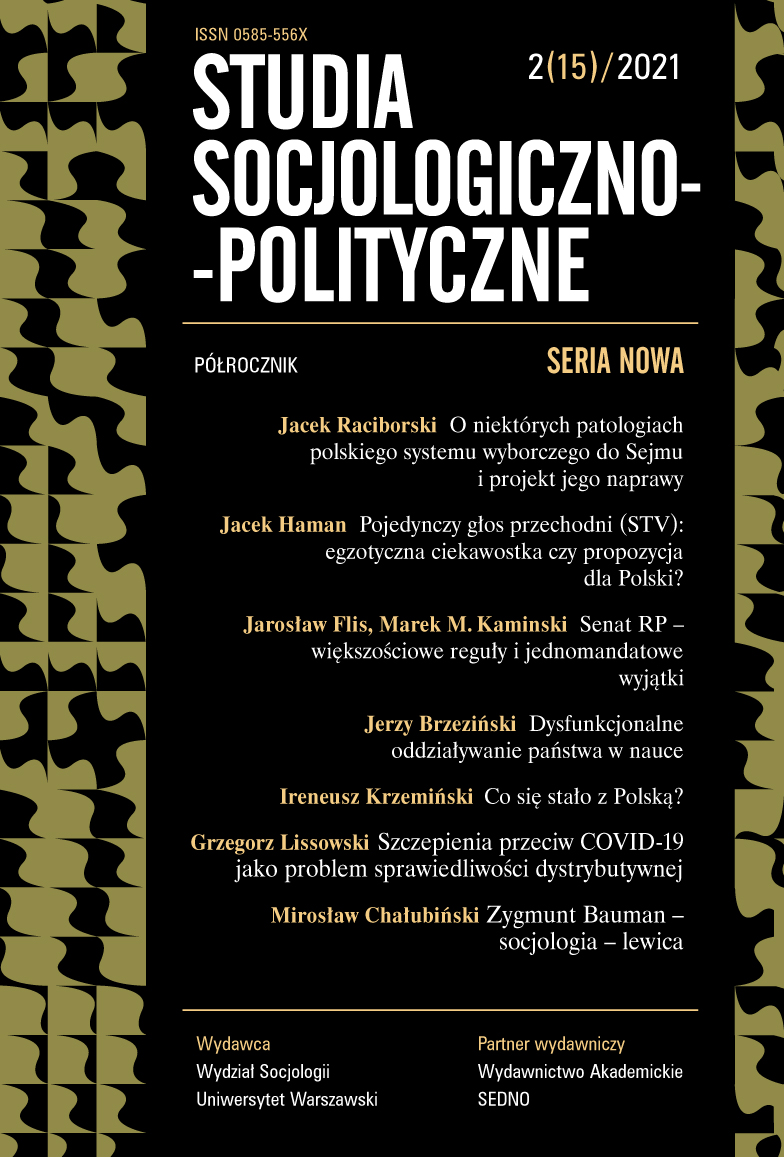Nieposłuszeństwo obywatelskie w Europie w okresie pandemii COVID-19
Civil Disobedience in Europe in Time of Pandemics COVID-19
Author(s): Ewa Bogalska-MartinSubject(s): Politics / Political Sciences, Politics, Social Sciences, Psychology, Political Theory, Political Sciences, Civil Society, Governance, Sociology, Political behavior, Political psychology, Politics and communication, Politics and society, Comparative politics, Social psychology and group interaction, Social differentiation, Health and medicine and law, Family and social welfare, Human Ecology, Social Norms / Social Control, Sociology of Politics, Politics and Identity
Published by: Wydział Socjologii Uniwersytetu Warszawskiego
Keywords: civil disobedience; pandemics; right to civil disobedience; social contract; rule of law; civic freedom
Summary/Abstract: The purpose of this text is to take up an analysis of forms of civil disobedience, occurred during the pandemic in Europe. Referring to works of such authors as H. Arendt,J. Habermas, J. Rawls we argue that civil disobedience, more or less contextual and varying, depending on the phase of the pandemic and on the country, has lead to the crisis of representative democracy and to the crisis of the art of governing (in technical and strictly legal terms) of the expert type. In the same time, civil disobedience has been a manifestation of the vitality of a democratic life. Disobedience can be seen as a sovereign political act – a consequence of a conviction that trust agreement between the ruling and the governed has been broken. Thus the disobedience aims at fixing it. In this sense, the civil disobedience became the collective reflective moment of democratic life in the meaning of U. Beck (2001).
Journal: Studia Socjologiczno-Polityczne. Seria Nowa
- Issue Year: 17/2022
- Issue No: 2
- Page Range: 53-71
- Page Count: 18
- Language: Polish

